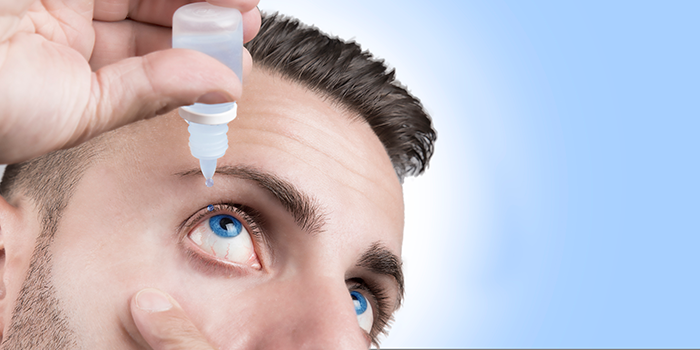
What is the difference between normal and preservative-free eye drops? Which eye drops should you choose and why? |
| 14.11.2015 |

Patients often ask what is the purpose of using lubricant eye drops and why should they use a certain type of them if all of them have similar properties. Yes, both those containing preservatives and those preservative-free lubricate the eye, but the former can only be used intermittently, mainly due to those preservatives.
Preservatives protect the product from bacteria and thus make it last longer. Most of the eye drops contain quaternary ammonium compounds (a class of preservatives) such as polidronium chloride or benzalkonium chloride (BAK).
BAK kills bacteria by destroying their cellular membranes. Unfortunately it can do similar damage to the cells of the human eye. Short, intermittent use of eye drops containing these substances leads to the damage of the superficial tissue of the eye. This, in turn, results in temporary irritation and redness of the eye. However, the longer they are used the deeper the tissue damage becomes, more ailments occur and ophthalmologic intervention becomes inevitable.
Fatigue and dryness of the eye, irritation, gritty sensation. Many of us have, on some point, experienced at least one of those ailments, especially after extensive work in front of the computer or while being in an air-conditioned room. It is all a result of the disturbances in the natural process of lubrication of the eyes. They become red and make us feel uncomfortable – we then avoid direct eye contact to hide this imperfection.
For the eye to function properly its’ lubrication must be undisturbed. This is what the tears are for – to create a protective tear film. Movements of the eyelids distribute the film evenly and assure its constant circulation. When the frequency of blinking is low the eye dries out as the evaporating film are not sufficiently replaced with fresh tears. This leads to malfunctioning of the eye and causes severe discomfort.
We should take best care of our eyes and assure their proper lubrication – sometimes by means of artificial tears.